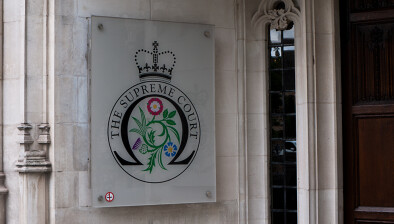UK Supreme Court rejects appeal by opticians against reduction of VAT credits

The UK Supreme Court has determined that HM Revenue and Customs has the power to refuse to accept a taxable person’s self-assessment claim and decide at a later date to pay a lower amount than was claimed after an appeal by a Scottish optician business.

About this case:
- Citation:[2022] UKSC 26
- Judgment:
- Court:UK Supreme Court
- Judge:Lord Hodge
DCM Optical Holdings Ltd, which trades as Optical Express, challenged the vires of HMRC to refuse to accept self-assessment claims for input VAT between 2008 and 2013, and further argued that a 2005 assessment of its taxes had been made out of time under section 73(6) of the Value Added Tax Act 1994. It was held by the Inner House of the Court of Session that neither challenge was open to DCM, although the Upper Tribunal had allowed the time bar challenge on appeal from the First-tier Tribunal.
The appeal was heard by Lord Reed, Lord Hodge, Lord Sales, Lord Hamblen and Lord Stephens. Julian Ghosh KC and David Welsh, advocate, appeared for the appellant and David Thomson KC and Ross Anderson, advocate, for the respondent.
Something was wrong
The appellant acted as the representative member for a VAT group with ten corporate bodies and was a partially exempt body for VAT purposes. Because DCM made both taxable and exempt supplies to its customers when dispensing and selling spectacles its VAT liability and its entitlement to recover input tax was calculated by reference to a partial exemption method authorised by section 19(4) of VATA.
Since 1998, the parties had encountered various disputes relating to VAT. The two particular disputes related to the case were for a 2005 tax assessment issued by DCM in relation to declared output VAT for accounting periods from October 2002 to June 2003, and decisions made by HMRC between 2008 and 2013 in which it reduced the VAT credits that DCM had claimed.
In relation to the 2005 assessment, it was argued that it had been made out of the time limit under the 1994 Act of two years after the end of the accounting period, or one year after evidence of facts came to HMRC’s knowledge which was sufficient to justify making the assessment. DCM argued that HMRC had known in January 2004 that “something was wrong” with its method and from then had one year to make their assessment.
The vires challenge related to decisions taken by HMRC to reduce the VAT credit due to DCM below the figures which DCM had submitted in its periodic returns. DCM argued that HMRC was constrained by statute in their responses when faced with a claim for a trader in a VAT return for a VAT credit, and it had not been open to them to reduce the claimed sum in the manner that they had.
Creature of statute
In a judgment with which the other four judges agreed, Lord Hodge said of the time bar argument: “It was common ground that section 73(6)(b) should be construed in accordance with the observations of Aldous LJ in Pegasus Birds Ltd v C & E Commissioners (2000), who upheld Dyson J’s approach stating [that] the relevant evidence of facts is that which was considered, in the opinion of the Commissioners, to justify the making of the assessment. The one-year time limit runs from the date when the facts constituting the evidence came to the knowledge of the Commissioners.”
He continued: “Section 73(6)(b) addresses the assessment which HMRC has in fact made and not a hypothetical assessment which they might have made but did not. The words of the subsection are clear. The focus is also on the subjective opinion of the relevant HMRC official, which is a question of fact. Absent a perverse view on the part of the official as to the adequacy of the evidence before him or her in relation to the assessment which is later made, it is HMRC’s knowledge of the evidence relevant to the particular assessment which starts the clock running under section 73(6)(b). These dicta blow a hole in DCM’s case below the water line.”
Turning to the vires challenge, Lord Hodge observed: “HMRC are a creature of statute and their powers are set out in statute either expressly or by implication. The power to verify a return is recognised in section 73(1) of VATA. There is no express power to refuse to meet a claim for payment by a repayment trader until the process of verification is completed or to amend a repayment return on completing the verification process. The power to do so, if it exists, must arise by implication. DCM argue that there is no such implication. I disagree.”
He concluded: “This does not mean that a taxable person is left without a remedy if HMRC’s verification is not expeditious or proportionate. It has long been established that HMRC are subject to the rules and principles of public law and they are amenable to judicial review. If HMRC were to act in a dilatory manner in carrying out their verification of a trader’s claim for a VAT credit or in a disproportionate manner, a taxable person could make an application for judicial review to achieve effective judicial control over the action or inaction of HMRC.”
The appeal was therefore dismissed.








